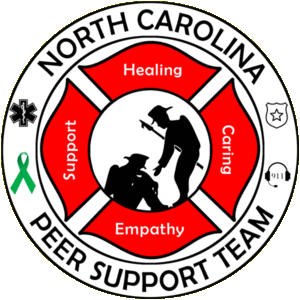First ask yourself some questions…
• Do you ever feel like you have no motivation to get yourself going with no apparent reason?
• Does this lack of motivation last longer than a few days or a few weeks?
• Have you lost the lust or excitement from life including lack of interest in previously enjoyed activities?
• Do you struggle with bouts of crying or unhappiness?
Definition: The way the term “Sadness/Depression” is used here is meant to cover a wide range of feelings. There is a distinction between sadness and depression, as they are not the same thing. Sadness is a very human and important emotion that can happen following an event or a difficult period of time in your life. If it lasts and starts impacting other parts of your life (i.e., work, relationships, etc.) this is when depression may be the cause. This tab can be used to help you identify if you may have an issue that could be addressed.
Signs (i.e. what may be observed by others) and Symptoms (i.e. what is reported by firefighter).
• Persistent sadness, anxiety, or “empty” feelings.
• Feeling hopeless or negative.
• Feeling guilty, worthless, or helpless.
• Overall feelings of irritability or restlessness.
• A loss of interest in activities or hobbies that you once enjoyed, and can include sexual activities.
• A lingering fatigue and decreased energy.
• Having difficulty concentrating, remembering details of activities, and making decisions.
• Sleep issues which can include insomnia (not sleeping), hypersomnia (sleeping too much), and/or early-morning wakefulness.
• A change in eating habits.
• Body aches or pains, headaches, and/or digestive problems that do not ease even with treatment.
• Active or passive thoughts of suicide.
Other Issues to Consider:
Men and Women experience depression differently:
Women’s depression tends to appear more withdrawn and often looks more like an “inward” expression of sadness. This can include feelings of sadness, worthlessness and excessive guilt. Women’s depression is more often what we think of with a “traditional” depression. Some women may seek out others, especially close family or friends to talk to or withdraw altogether.
Men’s depression tends to appear more irritable and often looks more like an “outward” expression of anger. This can include moodiness, a loss interest in once-pleasurable activities, and difficulty sleeping. Men may also be more likely than women to turn to alcohol or drugs when they are depressed. They may become frustrated, discouraged, and sometimes abusive. Some men throw themselves into their work to avoid talking about their depression with family or friends, or behave recklessly.
Self-Help Goals:
Thought Goal: I’m depressed or sad because I think… (Insert problematic thought here)… I can stop or lessen my depression or sadness by thinking… (i.e., About important upcoming events, your children, family or close friends, that these tough times will pass, etc.).
Feeling Goal: I’m depressed or sad because I feel… (Insert problematic feeling here)…. I can stop or lessen my depression or sadness by feeling… (More hopeful as you can handle difficulties and have done so in the past, supported when you reach out to your family or friends, etc.) .
Behavior Goal: I’m depressed or sad because my behavior… (Insert problematic behavior here)…. I can stop or lessen my depression or sadness by behaving… (In ways that make you feel more like you (exercising, eating better, engaging with your loved ones, etc.), reaching out when you need someone to talk to, etc.).
These goals are only examples; use them as guide not an absolute. You know if there is a problem, let now be the time to fix it.
Lastly:
Reaching out for help is never a sign of weakness, but rather one of strength. It may be intimating, annoying or frustrating to think about what to do and how to approach overcoming this, but it can be done. You do not have to do it alone. If you cannot reach or maintain all of these goals on your own, contact a peer supporter, medical provider and/or a psychology professional.
Written by: Brad Carter FF/PM ILFFPS Coordinator and Cody Todd M.A., L.C.P.C. FPS Therapist
